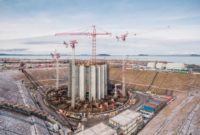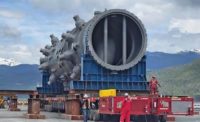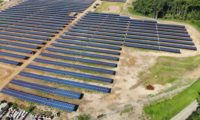A new report has raised debate about the future of Canada’s energy production and the need for some big pipeline projects.
The Canada Energy Regulator last month upset the country’s huge oil-and gas sector in outlining demand scenarios over the next three decades that include negative market impacts on the sector, with more aggressive climate-change actions. But work still is proceeding on three oil pipelines—the TransMountain expansion, new Keystone XL project and Enbridge 3 line replacement.
The report’s “status quo” outlook predicts demand for Canadian crude will expand, topping 7 billion barrels a day by mid-century. But under an “evolving scenario” with climate change steps, oil demand would peak by 2039 at 5.8 million bbl and decline. That outlook has revived criticism from opponents who want the pipeline projects ended.
Federal officials last month introduced legislation to cut national greenhouse gas emissions by 2030 and set binding net-zero carbon targets by 2050.
Richard Masson, executive fellow at the University of Calgary School of Public Policy, sees little chance the government will stop TransMountain, which it bought in 2018, even with a recent project price hike to $9.8 billion. “Producers are eager to get it built,” said Masson, also chair of World Petroleum Council Canada. “It gives them access to all kinds of markets.”
Work began in early December on the $6.75-billion Enbridge project, a 1,000-mile line from Alberta to Superior, Wisc., after Minnesota regulators rejected a legal request for a work half from tribes as they pursue litigation.
Even under lower-demand report scenarios, major projects “are needed to accommodate future growth,” said Kavi Bal, a spokesman for Alberta’s energy ministry. “Each pipeline serves different markets [for] Canadian oil.” He said demand for Canadian oil and gas is projected to “grow for decades to come.”
The province has also backed up its word with cash, with Alberta Premier Jason Kenney's investment last year of $1.1-billion into the Keystone pipeline expansion seen as a hedge against any potential move by the federal government to drop Trans Mountain.
"The reality is that, even with pipelines being built, dozens of potential new oil sands projects that have all the required regulatory approvals in hand are not moving forward. Many companies have taken multi-billion-dollar write-downs on existing and potential future assets while radically scaling back development plans," Andrew Leach, a University of Alberta energy and environment economist said in a Dec. 4 Globe and Mail opinion. "So the challenge now – and it’s no small one – is for governments in Edmonton and Ottawa to decide how much they want to bet on the chance that game-changing oil sands innovation can allow Alberta to capture a larger piece of a clearly shrinking global oil market."






Post a comment to this article
Report Abusive Comment